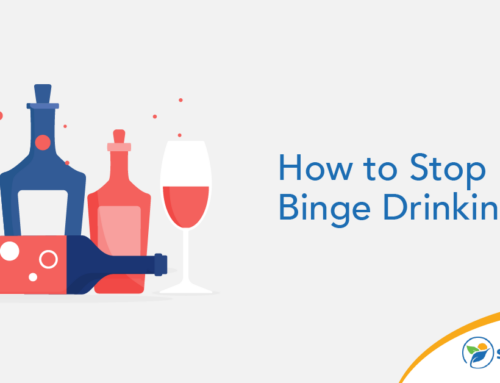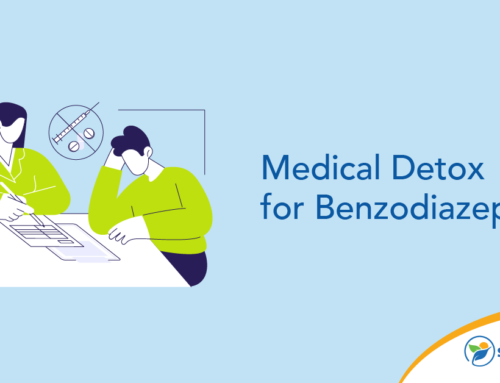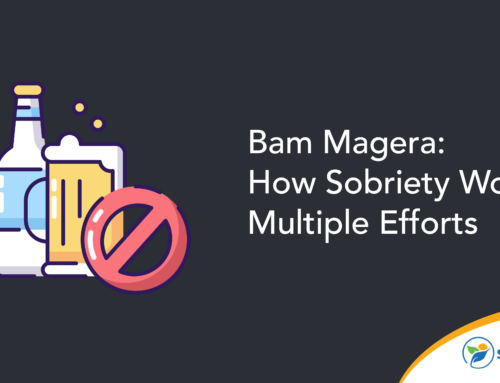Everyone has their own unique experience when it comes to alcoholism. If you’ve ever attended an alcohol support group, you’ve likely heard people share their stories firsthand. Some experiences are fairly straightforward. For example, someone might call themselves a “selfish alcoholic” and discuss how alcohol has negatively affected their behavior. Other experiences, however, can be confusing.
One commonly used yet confusing phrase is “grateful alcoholic.” On the surface, the term sounds contradictory. In reality, it symbolizes a major step in recovery. In this article, we’ll discuss what alcoholics mean when they say “grateful alcoholic” and share resources for those looking to overcome alcoholism.
What Is Alcoholism?
Before we delve into what it means to be a grateful alcoholic, it’s important to understand what alcoholism is. Also known as alcohol use disorder (AUD), it involves being addicted to, or dependent on, alcohol. Signs of this condition include:
- Craving alcohol
- Struggling to reduce alcohol consumption
- Experiencing withdrawal symptoms when refraining from alcohol
- Allowing alcohol to disrupt obligations or relationships
- Making bad decisions after drinking alcohol
In 2021, almost 30 million Americans over the age of 12 struggled with AUD. Over time, this condition can affect every aspect of life — including physical health, mental wellness and social relationships. According to the Centers for Disease Control and Prevention, excessive drinking can lead to long-term health risks such as high blood pressure and heart disease, as well as mental health problems like depression and anxiety.
The good news is that AUD can be overcome with treatment. Many recovering alcoholics even express gratitude for their experiences. These individuals often call themselves “grateful alcoholics.”
What Is a Grateful Alcoholic?
Now that you know what AUD entails, you might be wondering: Why would someone feel grateful about their alcoholism? In this case, the word “grateful” refers to their feelings about their recovery and any positive changes they’ve made during this journey.
To understand what these positive changes are, we have to take a closer look at alcoholism recovery. In general, overcoming an alcohol addiction isn’t just about eliminating alcohol consumption — it’s also about making changes that improve your overall well-being. Many alcoholism recovery programs encourage patients to:
- Repair social relationships
- Engage in hobbies or enjoyable activities
- Fulfill commitments (such as work or school obligations)
- Attend therapy sessions to improve mental wellness
- Maintain a healthy lifestyle (including a healthy diet and exercise regimen)
Ultimately, recovering alcoholics are encouraged to take steps that improve their physical, mental and social well-being. For some people, these are steps they might never have taken before their alcoholism. As a result, it’s common to feel grateful for your recovery journey. And gratitude can even help encourage further recovery.
The Importance of Gratitude in Recovery
The first part of gratitude involves reflecting on the past and the improvements you’ve made. The second part involves looking toward the future and the steps you hope to take. Here are some ways gratitude helps improve recovery.
- Increased positivity: It’s common for people with AUD to dwell on the negative aspects of their lives, such as bad decisions they’ve made due to alcohol. Over time, this focus on negativity can lead to overwhelming feelings of guilt or shame. Gratitude encourages people to think about positive changes instead, which in turn improves mental wellness. Focusing on positivity also encourages people to remain on their journey to recovery, even when things get difficult.
- Improved confidence: Alcoholism can have a serious impact on self-confidence. Many people may start to doubt themselves and their ability to overcome addiction. Expressing gratitude instead of doubt can help build a strong self-image. This is beneficial to personal mental health and can be motivating. The more self-confidence someone has, the more confident they’ll be in their ability to remain sober.
- Strengthened support systems: Having the support of friends and family can go a long way in encouraging recovery. Unfortunately, alcoholism can interfere with personal relationships, making it difficult to retain support. Showing appreciation and gratitude, however, can help strengthen those relationships and cement a strong support network.
It’s important to note that grateful alcoholics may still experience the challenges commonly associated with alcoholism. For example, a grateful alcoholic can be tempted by alcohol or struggle with their mental health. However, continuing to focus on gratitude can help overcome these challenges and lead to a healthier, happier lifestyle.
How to Practice Gratitude
While gratitude can be an extremely helpful resource during recovery, it’s not always easy to implement. Here are some suggestions on how to practice gratitude.
- Thank others: One way to express gratitude is by thanking people who’ve played a pivotal role in your recovery journey. This can include anyone from friends and family to sponsors and counselors. This helps show your appreciation and strengthen relationships.
- Practice self-care: In addition to appreciating others, make sure you appreciate yourself. Indulge in activities that bring you joy, such as hobbies or relaxation. These activities should be paired with a healthy lifestyle.
- Keep a journal: It’s not always easy to express emotions verbally. If you struggle to talk about your appreciation, you might prefer writing these thoughts in a journal. Writing and reading about your positive emotions can help reinforce them.
- Meditate: Mindfulness and meditation exercises are known to reduce stress and improve mental wellness. These exercises can also help clear your mind of negative thoughts, giving you more energy to focus on positive ones.
- Celebrate accomplishments: It’s important to recognize accomplishments you’ve made during recovery, even if they’re minor. You can celebrate things such as sobriety anniversaries, work achievements and personal goals.
From thanking others to meditating, there are many ways to embrace gratitude. It’s worth mentioning that, although gratitude is a powerful tool, it can’t encourage recovery on its own. Rather, it should be paired with professional alcoholism treatment.
Finding Strength in Recovery
Overcoming alcoholism isn’t easy. However, with the right resources, you can both conquer an alcohol addiction and rebuild your life.
At Sunlight Recovery, we provide medical detox programs and inpatient treatments designed for substance use disorders. We also offer therapy sessions that encourage recovery through gratitude and positive thinking. Ultimately, our resources help people improve their lives in a holistic manner. If you or a loved one needs support with alcoholism, please contact us today.







